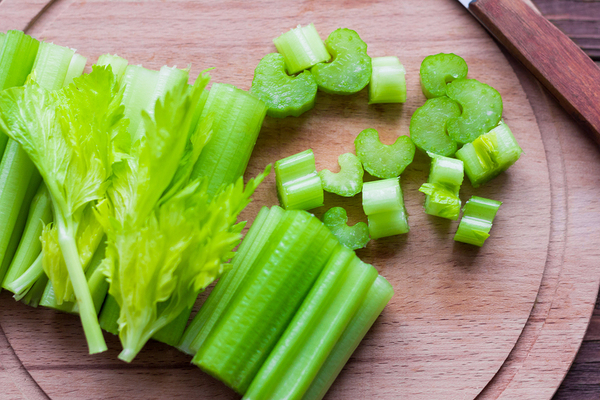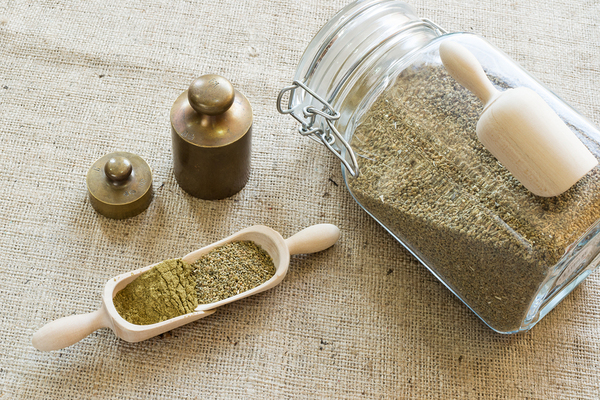


Celery has been cultivated as a vegetable since antiquity.
Celery is an everyday vegetable with superfood properties.
Leaves from celery were used as part of the garlands discovered in the tomb of Tutankhamun, and horses in Homer’s Iliad were described as grazing on wild celery growing in the marshes of Troy.
Celery is a cool weather vegetable and a staple in many modern dishes, including soups and sauces. Many people love eating celery raw too, because it makes a great base for spreads like hummus or peanut butter and complements the smooth textures of spreads with a satisfying crunchiness.
But celery is far more versatile than many people realize, and its nutritional qualities are becoming more evident with each passing year. Juice and seeds from celery, as well as the stalks, have many great nutritional properties.
An entire cup of chopped, raw celery stalk contains only about 16 calories, yet provides 37% of the target daily value for vitamin K. It’s also a good source of folate and potassium, and contains fiber, which benefits digestive health and weight loss.
Juice made from celery stalks offers the nutrition of celery in a more versatile form that can be consumed on its own, or as part of mixed juices of smoothies.
Celery seeds have long been used to add flavor to salads and other dishes. Extracts from celery seeds contain a compound called n-butylphthalide (NBP), which has antihypertensive properties. In some world regions, celery is primarily grown for its seeds, which when crushed release an oily compound called apiol that delivers a nice kick of flavor as well as anti-inflammatory benefits.

Crushed or whole, celery seed is often just the thing to add flavor to cold or hot savory dishes.
You may not have known this, but the leaves of the celery plant are edible too, and their strong flavor makes them a terrific addition to soups and stir-fry dishes.
Apigenin: Antioxidant with Possible Anticancer Properties
Apigenin is an antioxidant compound found in celery, and scientists are beginning to understand the health benefits it offers. Studies in mice suggest that apigenin may play a role in suppression of carcinogenesis (development of cancer), and researchers from the University of Missouri believe apigen has an effect on certain types of breast cancer tumors.
Researcher Salman Hyder of the University of Missouri says, “We do know that apigenin slowed the progression of human breast cancer cells in three ways: by inducing cell death, by inhibiting cell proliferation, and by reducing expression of a gene associated with cancer growth.”
How to Include More Celery in Your Diet
Celery is clearly much more than the humble addition to soups and side dishes that Americans are familiar with! One easy way to enjoy more of the benefits of celery is to make use of celery leaves by adding them to soups and stir fry dishes.
Celery seed adds a bit of warmth and spice to soup stocks, meat dishes, and egg salads, and they also go well with fish, chicken, and eggs. Chopped celery stalks make a great addition to green salads and form the basis for warm and nourishing cream of celery soup. And a plain, crunchy stalk of celery by itself or topped with nut butter or cream cheese makes a quick and easy nutritious high fiber snack.
Sometimes the “superfoods” we seek are readily available foods we’ve probably eaten all along, and celery is a good example of this. Choose organic celery that has not been subjected to pesticides whenever possible. Look for stalks that are firm and green, and leaves that are bright and that haven’t wilted for the best flavor and nutrition.
If you’re interested in optimizing your nutrition and fitness, Living Proof NYC invites you to contact us at any time. We would love to hear from you!